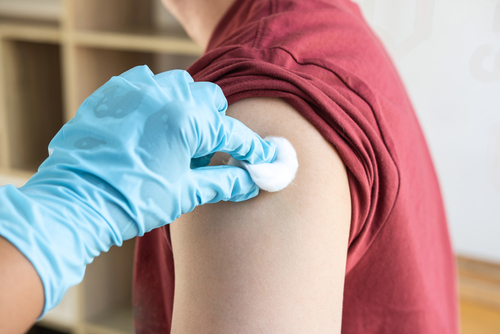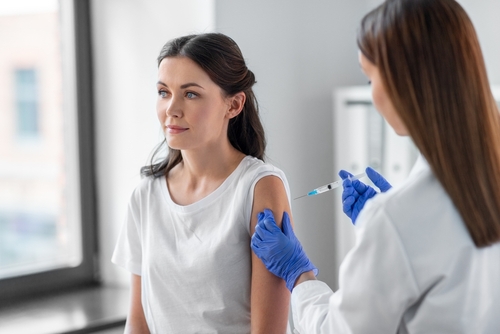Emergency Rooms in Toronto
If you or someone you know needs urgent medical attention, it’s important to know where to go for care and when to act quickly.
Know When to Call 911
Call 911 if you or someone nearby is experiencing severe chest pain, difficulty breathing, signs of a stroke (e.g., sudden numbness or weakness on one side), severe bleeding, or unconsciousness. Also call emergency services if the condition seems life-threatening or is worsening quickly.
For injuries or symptoms that are urgent but not life-threatening—such as fractures, severe cuts requiring stitches, or minor burns—you can drive yourself or have someone take you to the nearest emergency room.
Emergency Rooms in Toronto
Here are the emergency rooms in Toronto:
- Toronto General Hospital: 200 Elizabeth Street
- Mount Sinai Hospital: 600 University Avenue
- St. Michael’s Hospital: 30 Bond Street
- Sunnybrook Health Sciences Centre: 55 Life Saving Dr (2075 Bayview Avenue)
- North York General Hospital: 4001 Leslie Street
- Michael Garron Hospital – 825 Coxwell Avenue
- St. Joseph’s Health Centre – 30 The Queensway
What to Expect at the Emergency Room
When you arrive at the emergency room, you will be assessed through a process called triage. This assessment prioritizes patients based on the severity of their symptoms, not the order of arrival. Depending on the urgency, you may be seen immediately or asked to wait. A nurse will document your vital signs and symptoms before directing you to the appropriate care pathway.
How Long Do You Have to Wait at the Emergency Room in Toronto?
Wait times can vary significantly depending on the time of day, the day of the week, and the severity of cases. Critical cases will always take priority, so if you arrive with a life-threatening condition, you will likely receive immediate care.
For non-urgent conditions, during off-peak hours, such as early mornings (6am-8am), you may be seen within 3 to 4 hours. During busier periods, particularly late afternoons, evenings, weekends and long weekends, wait times for non-critical issues can extend up to 12 hours or longer.
For Non-Emergencies, Book a Same-Day Appointment at PinPoint Infinity Health
For non-urgent situations like minor illnesses, injuries, or general consultations, you can book a convenient same-day appointment with PinPoint Infinity Health.
Our easy-to-use online booking system ensures that you can access timely care without waiting in a crowded emergency room.
Book a time with us today
Where Can You Get a Tetanus Shot in Toronto?
What is Tetanus?
Tetanus, often known as lockjaw, is a serious bacterial infection caused by Clostridium tetani. This bacteria produces a toxin that affects the nervous system, leading to painful muscle contractions, particularly in the jaw and neck. In severe cases, it can cause breathing difficulties and even death. Fortunately, tetanus is preventable with timely vaccinations.
The bacteria typically enter the body through cuts, puncture wounds, or any injury involving broken skin. Common situations that can put you at risk include stepping on rusty nails, cuts from sharp objects, or bites from animals.
Where Can You Get Your Tetanus Shot?
Tetanus shots are available in a variety of settings, making it easy to find a location that suits your needs. Common places to get a tetanus shot include:
- Pharmacies: Many pharmacies provide walk-in vaccination services without the need for a doctor’s referral.
- Walk-in clinics: If you need a more flexible option, many walk-in clinics provide tetanus shots on a same-day basis.
- The emergency room: If you have suffered an injury, especially one involving deep punctures or contaminated wounds, the emergency room can provide immediate access to a tetanus shot to ensure you are protected without delay.
- Your family doctor: Most family doctors offer vaccinations during regular appointments.
When Should You Go for a Tetanus Shot?
The tetanus vaccine is typically included as part of routine immunizations during childhood, combined with vaccines for diphtheria and pertussis (whooping cough). However, booster shots are necessary to maintain protection over time. Here’s when you should consider getting a tetanus shot:
- Routine booster shots: Adults should get a tetanus booster shot every 10 years to stay protected.
- In case of injuries: If you suffer a puncture wound, deep cut, or any injury likely to be contaminated with dirt or rust, you should get a tetanus shot if your last booster was over 5 years ago. Ideally, you should go within 48 hours of the injury, but sooner is always better to ensure maximum protection
Get Your Tetanus Shot at PinPoint Infinity Health
PinPoint Infinity Health offers a hassle-free way to stay protected against tetanus. Whether you’re due for a routine booster or need immediate protection after an injury, PinPoint Infinity Health is here to help.
Our clinic is located at 39 Lower Simcoe St. in downtown Toronto and we provide convenient same-day appointments that you can easily book online.
Book your appointment today
Can You Travel with Shingles?
Can You Travel If You Have Shingles?
Travelling is exciting, but health concerns like shingles can put a wrench in your plans. If you or someone you know is dealing with shingles, you may be wondering whether it’s safe to hop on a plane or hit the road. Here’s everything you need to know.
What is Shingles?
Shingles, or herpes zoster, is a viral infection caused by the same virus that triggers chickenpox—the varicella-zoster virus. Even after recovering from chickenpox, the virus can lie dormant in your nerve tissues for years and reactivate later as shingles. It typically presents as a painful rash, often with blisters that appear on one side of the body or face.
Symptoms may include:
- Pain, burning, or tingling before the rash develops
- Fluid-filled blisters
- Itching
- Sensitivity to touch
- Fatigue and fever (in some cases)
Shingles can be uncomfortable, but with proper care, most people recover without long-term complications.
Is Shingles Contagious?
Yes, but with some important distinctions. Shingles itself isn’t spread through casual contact. However, the virus inside the fluid-filled blisters can be transmitted to someone who has never had chickenpox or the chickenpox vaccine. If they contract the virus, they won’t develop shingles immediately but instead will get chickenpox.
Transmission occurs through:
- Direct contact with open blisters
- Contact with contaminated items (like towels or clothing)
You are not contagious before the rash appears or after the blisters have crusted over.
Can You Travel With Shingles?
Whether you can travel with shingles depends on a few factors:
Severity of symptoms - If your pain is manageable and you feel up for it, short trips may be okay. However, long flights or extended travel might be uncomfortable and increase your risk of complications.
Contagious period - If you have open, fluid-filled blisters, you risk transmitting the virus to others. Travelling in close quarters, like on airplanes or buses, may not be considerate to fellow travellers.
General health - Fatigue and discomfort can worsen during travel, especially without proper rest. It’s essential to evaluate how well you feel before committing to travel plans.
When travel may be possible - If your blisters have crusted over and you’re no longer contagious, travelling is generally safe. However, you should still consult with a healthcare professional before finalizing your plans.
When Does Shingles Stop Being Contagious?
Shingles typically stops being contagious once all the blisters have dried and scabbed over. This usually happens within 7 to 10 days after the rash appears. Once scabbed, the risk of spreading the virus is significantly reduced.
To protect others and speed up recovery, here are a few tips:
- Keep the rash covered.
- Avoid touching or scratching the blisters.
- Wash your hands frequently.
If you’re unsure whether you’re still contagious, speaking to a medical professional is always a good idea.
Book an Appointment at PinPoint Infinity Health
At PinPoint Infinity Health, we provide comprehensive services for shingles management, including shingles vaccinations and travel vaccines. Whether you’re planning a trip or want to prevent future flare-ups, we’re here to help.
Our same-day clinic appointments are convenient and easy to book online. Don’t let health concerns hold you back from travelling or living your life fully.
Book an appointment today
Where Can You Get COVID-19 Shots in Toronto?
Toronto offers many convenient options for getting your COVID-19 vaccine, so finding a location nearby should be no problem. Here’s where you can get yours.
Where Can You Get Your COVID-19 Vaccine in Toronto?
- Pharmacies: Many neighbourhood pharmacies, such as Shoppers Drug Mart, Rexall, and independent locations, offer walk-in or booked appointments. They provide flexible hours, making it easy to fit a visit into your schedule.
- Walk-in Clinics: Numerous walk-in clinics across Toronto administer COVID-19 vaccines without the need for an appointment. They’re ideal for last-minute visits or when you want same-day availability.
- Family Doctors: If you prefer a more personalized approach, many family doctors are providing vaccines at their offices. They can answer any questions and ensure you’re comfortable during the process.
Get Your COVID-19 Shot at PinPoint Infinity Health
We’re here to make getting your COVID vaccine simple and stress-free. Located in downtown Toronto’s Harbourfront area, our clinic at 39 Lower Simcoe St. offers convenient same-day appointments. You can book online right now and secure your spot in minutes.
Book your appointment today and stay protected
How Frequently Should You Get COVID-19 Boosters?
Staying up to date with your COVID-19 vaccinations is important for ongoing protection. Health Canada recommends receiving a COVID-19 booster six months after your last dose. Sometimes, a shorter interval of at least three months may be appropriate, depending on individual risk factors and guidance from your healthcare provider.
Should You Get a Vaccine If You've Already Had COVID-19?
After a COVID-19 infection, getting vaccinated is safe and helps strengthen your long-term protection. If you've had a confirmed infection, waiting a bit before getting vaccinated can improve your immune response.
- If previously vaccinated: Consider waiting 3 to 6 months after infection.
- If not previously vaccinated:
- Wait 8 weeks if you’re not immunocompromised.
- Wait 4 to 8 weeks if you are immunocompromised.
This timing enhances immunity and ensures better protection.
Should You Get Your Flu Shot at the Same Time as Your COVID-19 Shot?
Yes, it's safe and convenient to receive both the COVID-19 and flu vaccines during the same visit. According to Ontario's Ministry of Health, these vaccines can be administered together or at any interval before or after each other.
This simplifies the vaccination process and reduces the need for multiple appointments. By getting both vaccines, you enhance your protection against these viruses, especially during the fall and winter months when their activity typically increases. If you have concerns about receiving both vaccines simultaneously, consult with your healthcare provider to determine the best plan for you.
Wrapping Up
Protecting yourself and your loved ones has never been easier. With accessible vaccine options across Toronto, same-day appointments, and the ability to pair your COVID-19 and flu shots, you’re just a step away from stronger immunity.




